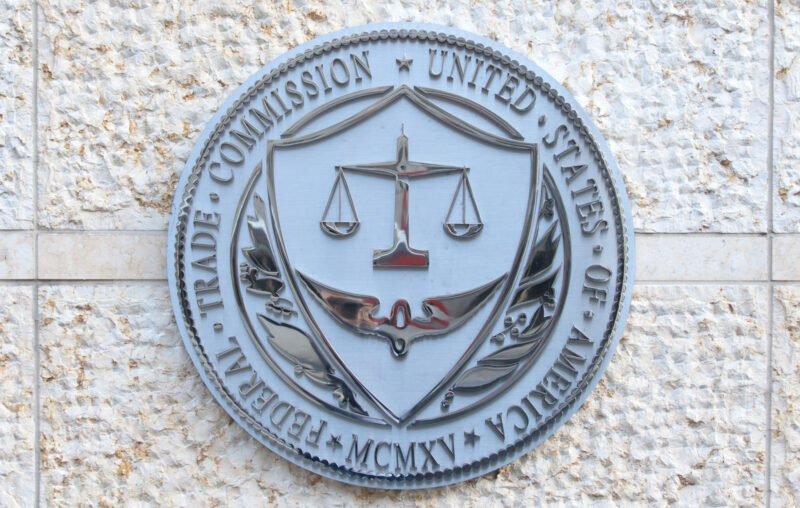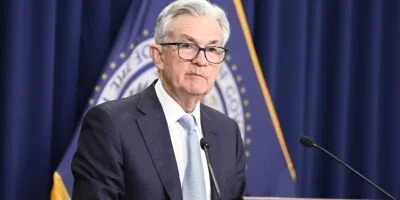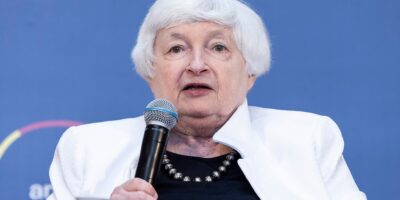The FTC’s Case Against Amazon is a Case Against American Consumers

The Federal Trade Commission (FTC) late last month filed suit against Amazon as an alleged monopolist (in two relevant markets) that uses putatively illegal business practices to fortify its market dominance. The agency targets as “unfair” Amazon’s policies that discourage sellers from offering lower prices elsewhere and that tie the benefits of Amazon Prime to the company’s in-house fulfillment service. The FTC’s suit is quite flimsy, and it will likely founder in court.
This case demonstrates the eagerness of Biden-appointed, neo-Brandeisian antitrust officials to persecute large companies, even when doing so requires endangering consumer welfare. Neo-Brandeisians — members of a regressive school of antitrust that seeks a return to debunked early 20th-century theories — harbor biases against big business per se, irrespective of economic benefits to consumers. And sure enough, should the FTC prevail against Amazon, Americans would likely suffer inflated prices and delayed delivery times.
Understanding Amazon’s place in the digital economy, and in the hearts of Americans, reveals fully the FTC’s malfeasance and how out of touch the agency is. Amazon has won its success as a marketplace and order fulfiller by offering innovative services that profit third-party sellers and provide consumers savings and convenience. For sellers, it offers a vast (and previously unreachable) customer base. Users may reliably assume that the products it lists and promotes are of good quality, competitively priced, and quickly deliverable.
JPMorgan Chase estimated a $139-a-year Prime membership’s worth at as much as $1,000. A 2023 poll reported that two thirds of voters use Amazon weekly, and almost a quarter use it daily. What’s more, 91 percent of platform users described themselves as “satisfied,” while 63 described themselves as “very satisfied.”
The FTC seeks legally to upend the very features that make Amazon beneficial for consumers, who assume that Amazon will secure for them the lowest prices possible. “Just like any store owner who wouldn’t want to promote a bad deal to their customers, we don’t highlight or promote offers that are not competitively priced,” Amazon argues. It boasts lower prices than any other online retailer, according to a 2022 analysis, undercutting competitors on average by 13 percent. It undercuts the two next largest online retailers (Walmart and Target) by 6 percent and 16 percent, respectively.
Likewise, two-day shipping through Amazon Prime has become a foundational perk for the platform. Amazon does not precondition a seller’s access to a Prime badge (which brings several benefits) on the seller’s use of Amazon’s fulfillment service (FBA). It maintains high standards, however, for sellers who opt to fulfill Prime-labeled orders through other means, and many sellers, considering the various options’ costs, choose to utilize FBA. Curating a marketplace in which many or most products in any given search can reach the customer within two days is central to Amazon’s success — i.e., its usefulness to its users. The company wishes justifiably to maintain a sterling reputation for reliability.
Viewed properly, moreover, Amazon appears as not an omnipotent monopolist, but rather an albeit powerful player in a far larger retail ecosystem. But the FTC makes another odd case, that Amazon does not compete meaningfully with many offline retailers nor, even more stunningly, with many online ones.
To advance its case, the government has gerrymandered market definitions to exclude the abundant competition Amazon contends with. These definitions matter greatly in many antitrust suits wherein the government must prove that defendants qualify legally as monopolists. To that end, regulators often attempt to define markets narrowly to inflate the defendant’s apparent market control.
In the FTC’s reductively defined market of “online superstores,” Amazon could control more than 60 percent. “This alleged market is so narrowly drawn that it appears to include just Amazon, eBay, and the online stores offered by Walmart and Target,” writes the International Center for Law and Economics (ICLE) President Geoffrey Manne. However, Amazon likely accounts for less than 30 percent of domestic online retail and just 5 percent of domestic retail generally. Roughly 80 percent of global retail still occurs in physical stores. The FTC omits key retail competitors such as brick-and-mortar stores, online specialty retailers, product brands’ own websites, and the like.
The agency draws similarly myopic boundaries around the second market it alleges Amazon has monopolized, the so-called market for “online marketplace services purchased by sellers.”
In doing so, the FTC disregards the concept of “substitutability,” which recognizes that people often “substitute” apparently dissimilar things for one another. Economically speaking, the proper question is neither whether a good or service looks like a duck nor whether it quacks like a duck, but whether consumers will put it to the same use as they would a duck. If, for example, the cost of dairy products rise, a person might switch his dessert choice from ice cream to baked goods or fruit. Although the FTC points to obvious structural and operational variations between Amazon and such companies as Costco or Shopify, its argument to omit them from consideration as Amazon’s relevant competition rests more heavily on aesthetic, than economic, factors.
Amazon’s size and success has drawn hyperventilating calls for antitrust enforcement before. Many fretted over the company’s 2017 acquisition of Whole Foods, which, per now-FTC Chair Lina Khan, would allow the company to dominate grocery sales and “to potentially thwart future innovations.” However, as economists at ICLE noted in March, “almost five years after the merger, the stocks of many rival companies have significantly outperformed Amazon.” ICLE details further that Amazon lowered prices and “introduced new technologies to Whole Foods stores,” forcing competing chains likewise to innovate and to cut prices. In short, the merger increased competition in the grocery-store sector and benefitted customers.
To accept the government’s reasoning, one must assume that, should Amazon’s service begin qualitatively to decline, consumers likely would nonetheless continue to use its platform. But Amazon’s success as an online marketplace, which stems from its relative superiority over other online marketplaces, guarantees no similar success in other ventures. Nor does it guarantee continued success should Amazon stumble or should new competition innovate more useful services.
Indeed, Amazon faces growing online competition. The Wall Street Journal (WSJ) reports that “Walmart’s US e-commerce revenue has averaged 39 percent annual growth over the last four years and is expected to hit nearly $62 billion in the fiscal year ending January, according to consensus estimates from Visible Alpha.” WSJ adds that “Shopify has more than tripled its revenue over just the past three years precisely by powering e-commerce sales for a variety of large and small merchants looking for an alternative to selling on Amazon.” Moreover, US shoppers have increasingly chosen to shop at bargain online retailers such as Temu and Shein, which provide ultra-low prices with longer shipping times.
Even in an era of inflation, digital markets have had profoundly deflationary effects. Economist Art Laffer in 2022 noted that, “According to the Digital Price Index (DPI), which measures prices of goods sold in the digital economy, a good that was $100 in 2014 would cost $84 in 2022, a decrease of 16 percent.” Disassembling Amazon’s business model would almost surely dampen this trend.
When ideologically driven regulatory crusaders interfere imprudently in markets, prices rise, innovation slows, and consumer choice decreases. The FTC’s weak suit against Amazon is just such a threat.







